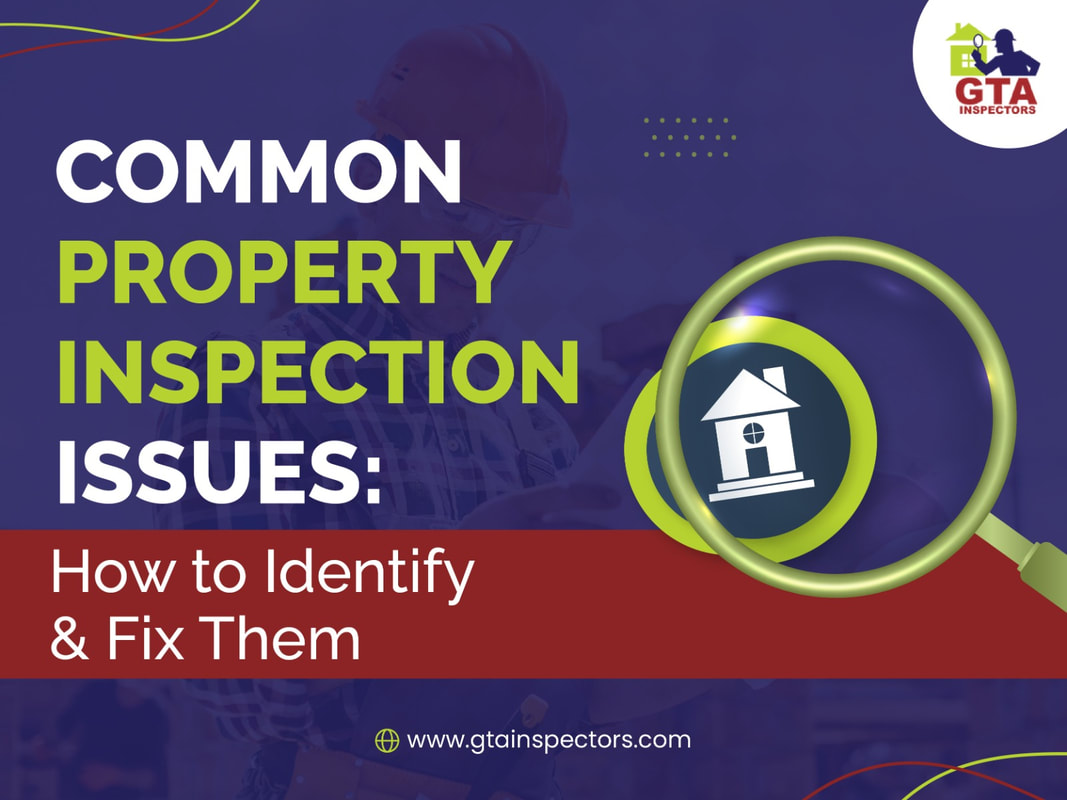|
Every year, home inspectors examine hundreds of homes; depending on where they live, they may discover various flaws. However, there are several issues that every inspector finds regularly, regardless of where they live.
Here are some of the most prevalent flaws discovered by home inspectors, so you'll know what to look for when your house is inspected! 1.Rooftop Issues: Home inspectors frequently discover roofing problems during property snagging. Homes, especially ten years or older, are prone to roof damage. Traditional asphalt shingles span 15 to 40 years, depending on location. Roof repairs are more likely to be needed in regions with harsher weather. However, there can be structural damage or quiet places from the damage left unattended, which can be costly to replace. Most roof faults are straightforward fixes, such as replacing missing shingles. 2.Issues With Electrical Wiring: Incorrect connections, stripped wires, weak breakers, and exposed wiring from previous repairs or renovations are frequently discovered by inspectors. The majority of the time, older homes have this problem. Modern homes are wired to comply with all current electrical standards and have a plentiful power supply. 3.Inadequate Attic Insulation and Ventilation: Older houses frequently have ventilation and energy efficiency problems. Attics that are insulated but have yet to be aired are commonly discovered by home inspectors, which causes them to be overly warm in the summer. The absence of ventilation may make it more challenging to maintain a cool interior while increasing the risk of mold growth and other problems. Because cool air can enter a home during the winter and is more difficult to keep inside during the summer, a house with poor insulation and ventilation may be less energy efficient. 4.Inadequate Grading and Drainage Near the Home: Because it doesn't rain frequently and constantly enough to pose a severe threat to residents, drainage problems are often only discovered once an inspector performs an inspection. Poor drainage, however, is a significant problem. Mold can grow, and issues with the foundation of a house that could lead to its collapse can occur if water collects at its base and cannot drain. Professional property inspector frequently discover the slope and drainage around homes to enable water to pool, which may leak into the basement or cause the foundation to degrade and fail. 5.Water Supply Issues: Plumbing issues can be hazardous and prevalent. Leaks, sluggish drains, and poor water pressure are all examples of minor outward flaws. Since plumbing problems are expensive, inspectors carefully examine the system. Unless the inspector discovers significant flaws, minor plumbing problems are typically simple, so there should be little of a problem. Occasionally inspectors uncover systems that can't be repaired. 6.Termites and Other Pests That Destroy Wood: Infestations may develop in situations with persistent dampness and moisture. Anywhere there is wood-to-ground contact and cracks in your foundation are potential entry locations for termites and other wood-destroying insects. Mud tubes, obvious wall mazes, wood shavings, and swelling ceilings and floors are indications of an infestation. Restoration is expensive. Termites cost the US $5 billion in property damage each year. 7.Brick Masonry Flaws: As homes shift, brick cracks are frequent. Due to the threat of damages to a house's structural integrity, inspectors pay close attention to serious masonry issues such as deep, horizontal cracking in retaining walls, slabs, foundations, outdoor steps, and chimneys. Though more frequent than horizontal cracks, vertical cracks are less problematic. Vertical lines of gaps between the bricks in the mortar are acceptable, but if the cracks begin to separate at the mortar or if they penetrate the bricks, there is a severe structural issue. Costs can reach several thousands of dollars if significant structural repairs are required. Final Notes on Required Fixes and Repairs A home inspection is one of the biggest obstacles in a real estate deal. A seller and a buyer must pay attention to the wise counsel of their real estate agent. A listing agent and a buyer's agent should advise the seller and the buyer, respectively. Some repairs should be treated seriously, while others are merely cosmetic and can be ignored. There is frequently a tiny line between what has to be addressed and what doesn't. Before a home is formally purchased, it is advised to be examined by qualified snagging companies like GTA Inspectors. This will assure you that your house is safe for you and your family and make you feel more secure there.
0 Comments
Leave a Reply. |
AuthorWrite something about yourself. No need to be fancy, just an overview. Archives
July 2024
Categories
All
|


 RSS Feed
RSS Feed
